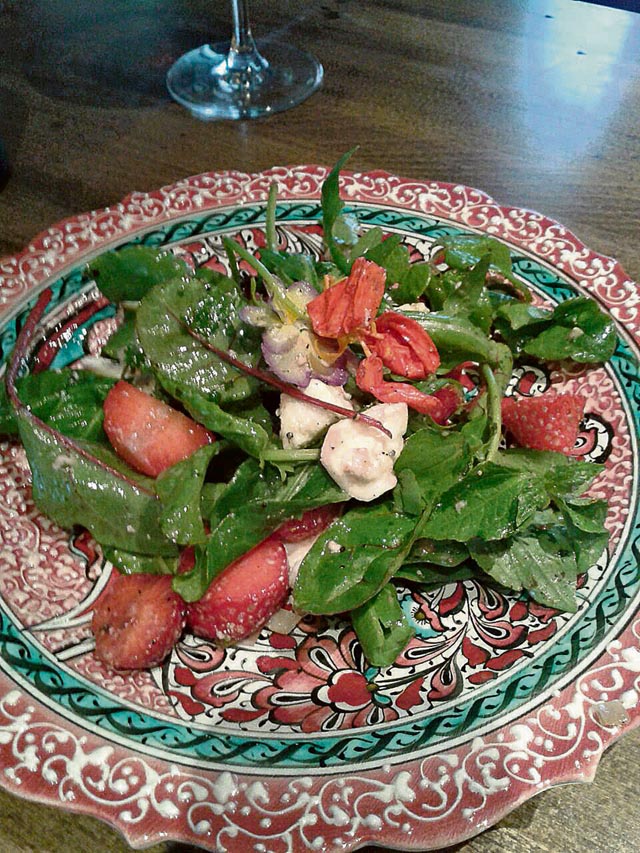
The most basic way to get to know a place is to enjoy its food. But, if you want to dive into its heart, you must explore a town’s farmers markets. And not only a single outing will suffice; you need to commit to regularly scheduled visits, spread over seasons. K-town markt, Kaiserslautern Markt, offers its heart to residents and visitors two mornings every week.
On Tuesdays and Saturdays, customers count themselves lucky living in a place known for its prime agriculture. The market stalls are stocked with ample treasures revealing the core of the Rheinland-Pfalz culture. Eggs, cheeses, meats, breads, seasonal produce, local delicacies (especially the homemade sauerkraut), and plants and flowers. My first visit took place in the middle of January, a bleary late Saturday, frosty from a recent light snow.
Despite the cold temperatures and gray skies, the market stalls somehow emitted a subtle hum that warmed customers. The very first purchase, a jar of Amber color honey from a local imkerei, launched an epic love affair. Between work demands and home responsibilities, it is quite easy to become detached to the things in life that nourish us. Without realizing it, we forget the essence of fresh sweetness that our world, and more specifically, our local land, can offer us. Connecting people to the land that sustains them, markets often offer fresher and healthier food options compared to grocery stores.
Although produce can cost twenty percent more, the superior quality is evident in the taste and health benefits. Kaiserslautern’s market strives for integrity. It’s board of directors recently instituted a new regulation that stall owners must distinguish between produce grown from their own gardens and those purchased. White labels signify fruits and vegetables grown by the seller and yellow tags signify that they have been purchased for reselling. Rain or shine, a visitor can’t help but grin from ear-to-ear while they sip on fresh squeezed orange juice, nibble on homemade nougat or discover which vegetable is currently in season. For foodies and nature lovers, it is a similar feeling to opening up your stocking on Christmas morning — you may have some inclination of what lies inside, but you are always pleasantly surprised. Visit the Kaiserslautern weekly market every Tuesday and Saturday 7 a.m. to 1 p.m.

Three “must-see” Kaiserslautern Market stalls
For meat: Härting Metzgerei
The Pferdemetzgerei Härting is a modern butcher shop, which uses mainly horse meat, but also pork from the region. It is managed by a second generation master butcher and his wife. They always have a long line, offering hot selections of wurst (both horse and pork) meatloaf, meatballs, Knackwurst and daily side dishes. They have their own slaughterhouse, ensuring quality production. This stall is a gem for all market goers.
For eggs: (Eier aus Bodenhaltung) Herr Pratz
This stall is quite small in size, as the market is a part-time job for Herr Pratz, who works as an adviser in the chamber of Agriculture in Kaiserslautern. All of his selections are carefully chosen from local sources, homemade pasta made from farmed eggs in Landstuhl, the best jam from “Horterhof” and homemade liver sausage.
Hermann Pratz mixes the feed for his chickens himself. By regulation, every seller must look at each egg for abnormalities. His eggs are superior in quality and taste.
For honey: Imkerei Joachim Langner
There is nothing more effective at treating seasonal allergies than regular ingestion of local bee pollen. Germans are at a top position in the global honey consumption: Local beekeepers make up the majority of the German honey industry, while less than one percent of beekeepers maintain it as a sole professional business. This lovely stand has a honey for all palates and tastes. Ask for a sample to know what you prefer. Herr Langner offers suggestions and advice on how to use the honey in special dishes.







